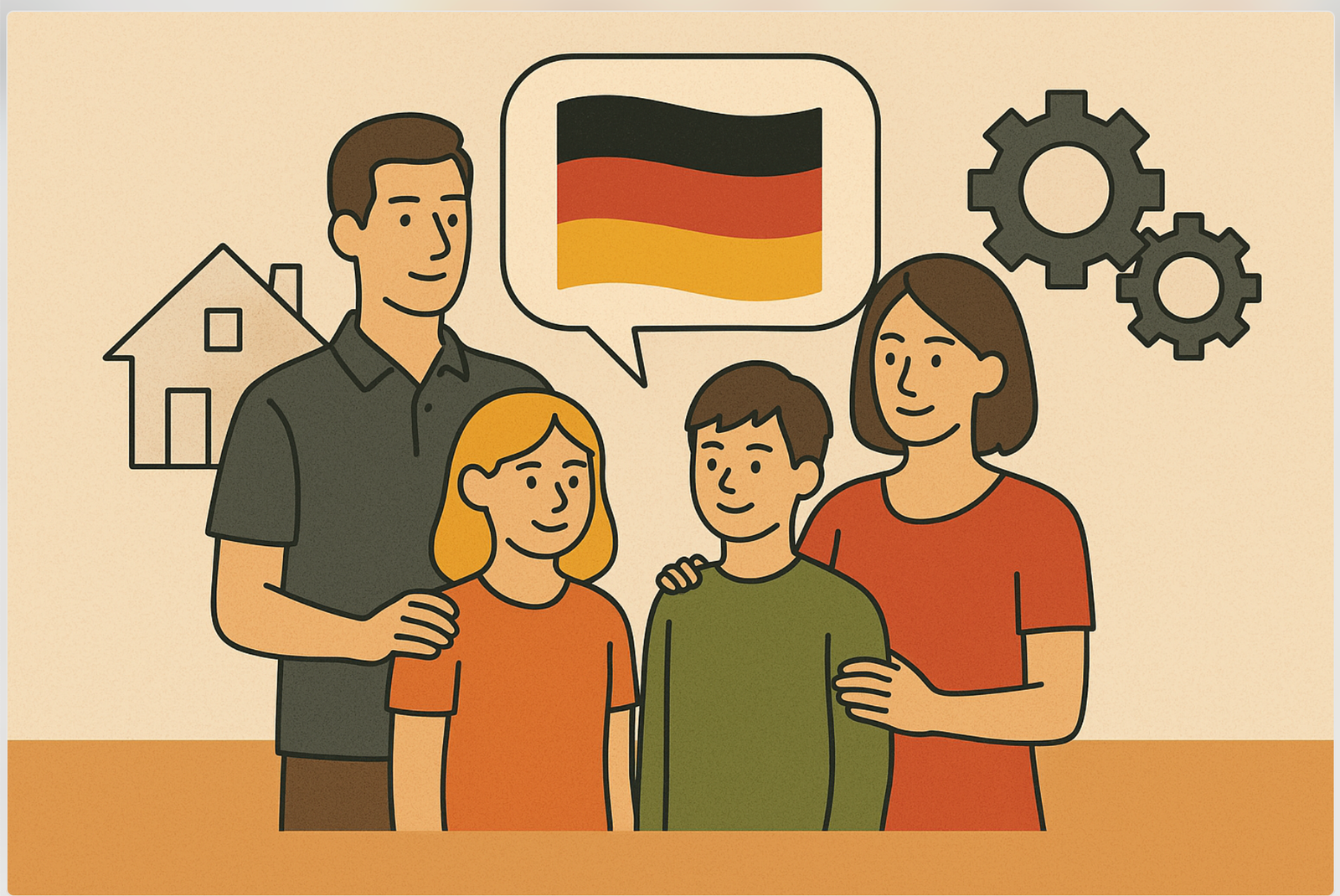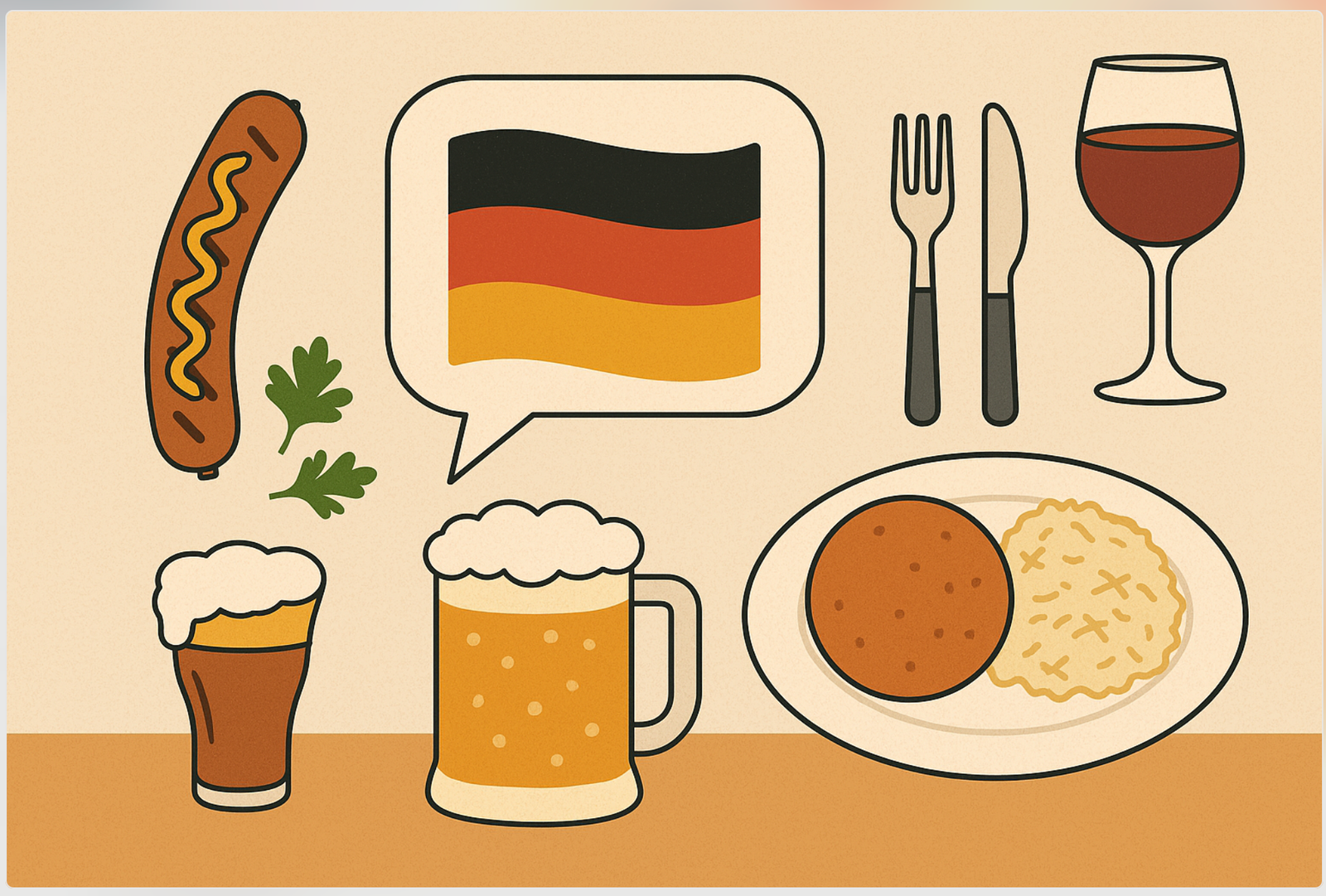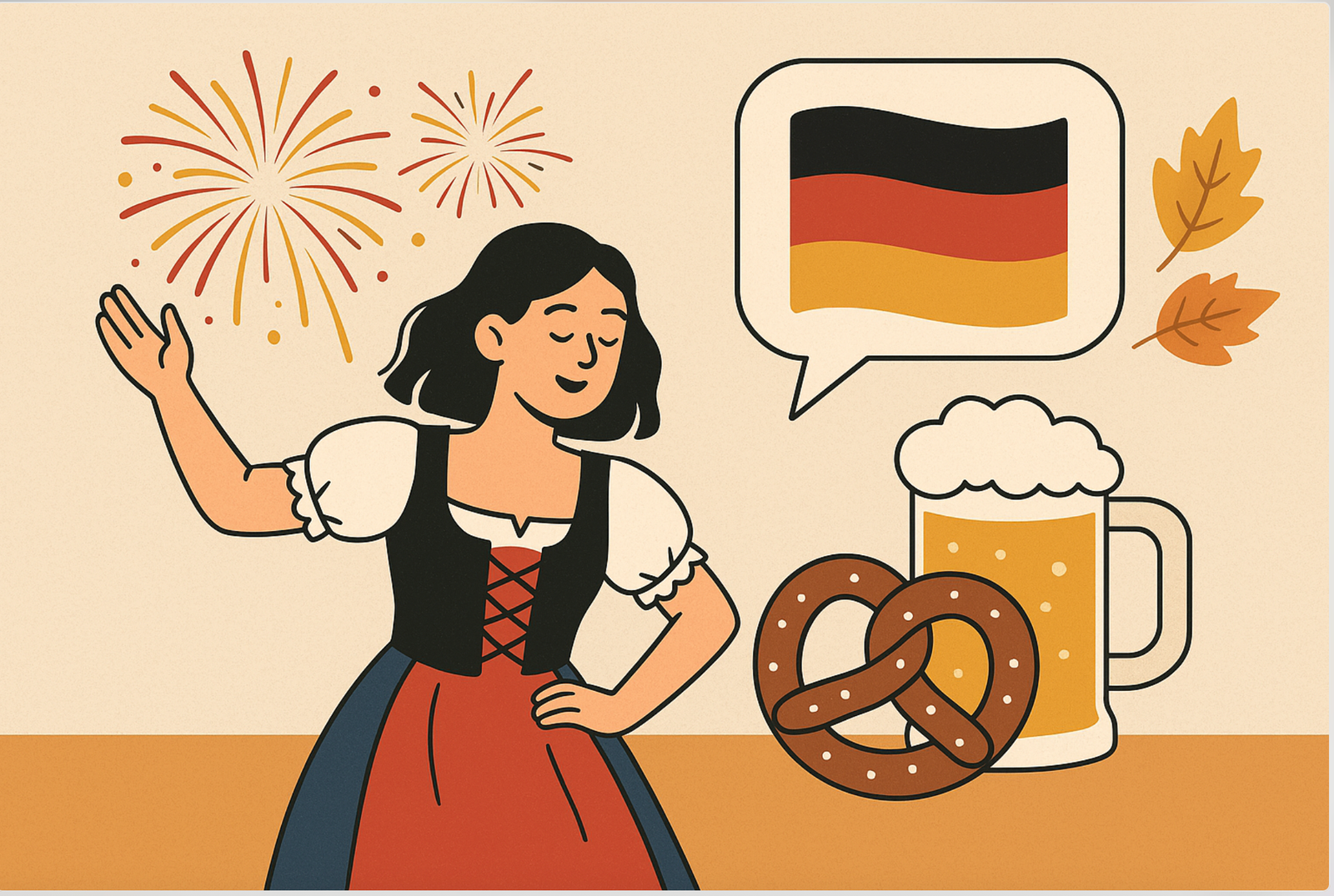When you think of German family life and values, the phrase “Ordnung muss sein” often comes to mind. This expression, which translates to “there must be order,” beautifully encapsulates the essence of German culture. But what does it truly mean in the context of family life? Beyond the tidy homes and punctuality, “Ordnung muss sein” speaks to a deeper belief system that prioritizes structure and stability, shaping the lives of families across generations. In this blog post, we uncover how this philosophy not only dictates daily routines but also influences parenting styles, work-life balance, and community interactions.
In the pursuit of understanding German family dynamics, it’s essential to look beyond the stereotype of rigid discipline and explore the warmth and unity that thrive within this framework. Families in Germany strive to balance their career ambitions with meaningful time spent together, emphasizing quality moments over quantity. As we navigate through the intricacies of German family life, we’ll discover how these values foster an environment where individuals are encouraged to thrive, develop autonomy, and maintain strong familial bonds—all while respecting the unspoken rule that harmony and order are paramount.
Origins of ‘Ordnung muss sein’ in German Culture
The phrase “Ordnung muss sein” has woven itself deeply into the tapestry of German Family Life and Values. Tracing its origins, one can find echoes of this maxim in the early Protestant work ethic, which emphasized discipline, self-control, and a methodical approach to daily tasks. As the Holy Roman Empire fragmented into myriad states, local rulers and clergy promoted order as a means of social stability. This notion found official backing in the Prussian administrative machine of the 18th and 19th centuries, where meticulous record-keeping and protocol became hallmarks of governance. Over time, these institutional practices trickled down into civilian life, setting the stage for households to adopt a similar devotion to structure.
By the 19th century, the values of punctuality and precision had become emblematic of German identity. Industrialization further cemented this ethos: factory timetables demanded that workers—and by extension, their families—organize every facet of daily existence around the clock. Yet, the appeal of “Ordnung muss sein” was not solely about efficiency; it offered a sense of security in a rapidly changing world. The certainty that chores, finances, and schedules were managed properly provided psychological comfort as Germany urbanized and modernized.
Today, “Ordnung muss sein” persists as more than a cultural cliché. It underpins German Family Life and Values by fostering reliability and mutual trust within households. Whether in rural villages or bustling cities, families continue to pass this philosophy from one generation to the next. It serves as a silent agreement: When everyone honors their responsibilities—be it setting the dinner table at exactly 6 p.m. or ensuring recycling bins are sorted—harmony follows. These historical roots reveal why order remains an indispensable cornerstone of family life across Germany.
Daily Routines and Orderliness in German Families
In modern German Family Life and Values, daily routines are meticulously planned to balance work, education, and leisure. From the moment parents wake children for school to the evening cleanup, households often rely on weekly schedules outlined on kitchen whiteboards or printed calendars. Breakfast usually occurs at a set time—often cereals, bread rolls, or quark with fruit—before everyone departs for work or school punctually. This level of order minimizes morning chaos, allowing families to leave home calmly and on schedule.
After school and work, chores become an integral part of the routine. Laundry days might fall on Wednesdays, while vacuuming and dusting take place every Saturday morning. Children learn early that contributing to household tasks is non-negotiable. Age-appropriate responsibilities, such as unpacking the dishwasher or taking out the trash, reinforce accountability. Even leisure activities—sports practice, music lessons, or family walks—are slotted into specific time frames, ensuring that free time is both restorative and structured.
Weekend traditions further exemplify this orderly approach. Many families designate Sunday afternoons for hiking excursions or visits to local cafés, while reserving Saturday evenings for movie nights or board games. Meal planning also reflects this organization: elaborate Sunday brunches are often prepared in bulk, providing leftovers for quick lunches during the week. By embedding predictability into everyday life, German families cultivate an environment where each member knows what to expect, reinforcing trust, reducing stress, and upholding the wider cultural ideal that Ordnung must indeed be.
The Role of Structure in Parenting Styles
German Family Life and Values place considerable emphasis on consistency and clear boundaries in parenting. From infancy onward, children are introduced to routines—regular bedtimes, mealtimes, and study hours. This structure is not meant to stifle spontaneity but to create a safe container in which children can explore with confidence. Parents use positive reinforcement, praising adherence to rules and offering gentle reminders when expectations aren’t met.
Discipline in German households typically avoids harshness or unpredictability. Instead, time-outs, logical consequences, and open conversations about behavior are common tools. For example, if a child neglects homework, they may lose a portion of screen time until the task is completed satisfactorily. This approach teaches responsibility and self-regulation, aligning with the broader cultural belief that structure fosters autonomy rather than dependency.
Furthermore, parental involvement is balanced with respect for the child’s individuality. Regular family meetings allow children to voice opinions on weekend plans or household chores, ensuring they understand not only the rules but also the rationale behind them. Ultimately, the role of structure in parenting within German Family Life and Values is to provide a predictable framework that nurtures self-confidence, problem-solving skills, and mutual respect—qualities that remain with children long after they leave the family home.
Work-Life Balance in German Family Life
Work-life balance is a hallmark of German Family Life and Values, reinforced by legislative measures and deeply ingrained cultural attitudes. The Arbeitszeitgesetz (Working Hours Act) limits the standard workweek to 48 hours, with most full-time positions averaging 35–40 hours. Overtime is regulated and often compensated with time off rather than additional pay, encouraging employees to disconnect and recharge rather than accumulate endless extra hours.
Parental leave policies further support family cohesion. Mothers and fathers can share up to 14 months of paid parental leave (Elterngeld), and affordable childcare is widely available through Kindergärten and Kitas. Employers commonly offer flexible working hours or part-time arrangements, allowing parents to attend school events or doctor’s appointments without penalty. Annual vacation entitlement usually spans 24 to 30 days, providing families with ample opportunity for extended holiday trips or simply quality time together at home.
Beyond regulations, a cultural respect for personal time ensures that after-work hours are rarely disrupted by business calls or emails. Colleagues expect each other to honor non-work hours, reinforcing the idea that family life deserves equal priority. By institutionalizing these boundaries, German society underlines that maintaining harmony at home is as crucial as professional achievement—a core tenet of German Family Life and Values.
Community Interactions and Social Cohesion
Community involvement is a vital expression of German Family Life and Values, where local gatherings and volunteer associations (Vereine) strengthen social bonds. From sports clubs and music orchestras to volunteer fire brigades, these organizations provide structured avenues for families to engage beyond their homes. Participation often starts at a young age, instilling a sense of civic duty and belonging.
Seasonal festivities—such as Weihnachtsmarkt (Christmas markets) and Kirchweih (church fairs)—offer communal settings for families to meet, share food, and celebrate traditions. Neighbors routinely coordinate events like block barbecues or spring clean-ups, demonstrating that order extends beyond individual households into the public sphere. Shared responsibilities, like rotating shifts for managing community bulletin boards or tending to neighborhood gardens, foster mutual reliance and trust.
Through these interactions, children witness firsthand how individual commitments contribute to collective well-being. They learn that abiding by community rules—such as recycling protocols and public quiet hours—is essential for harmony. These practices reinforce the broader philosophy that orderliness and social cohesion go hand in hand, forming the bedrock of stable, supportive neighborhoods that reflect core German Family Life and Values.
Cultivating Warmth and Unity within the ‘Ordnung muss sein’ Framework
Though “Ordnung muss sein” may sound austere, German families infuse this structure with warmth and solidarity. Scheduled family dinners, for instance, serve as daily rituals where members—across generations—gather around the table. Conversations revolve not only around tasks but also life events, fostering emotional connection within the ordered environment.
Holiday traditions further demonstrate how order and affection coexist. Planning for Christmas often begins weeks in advance: decorations are meticulously chosen, baking schedules are shared, and gift lists are drafted collaboratively. Yet behind this careful organization lies genuine enthusiasm, laughter, and a sense of wonder, especially among children. By embedding rituals into a framework of order, families create reliable touchpoints that reinforce unity and nurture mutual care.
Moreover, celebrations of milestones—birthdays, graduations, anniversaries—are structured with clear roles: grandparents host gatherings, parents handle catering, and children contribute with handmade cards or performances. This division of labor ensures no detail is overlooked, while also allowing each member to feel valued. In this way, the ordered approach amplifies rather than diminishes warmth, demonstrating that structure and empathy are not opposing forces but complementary facets of German Family Life and Values.
Balancing Career Ambitions with Quality Family Time
In today’s Germany, balancing career goals with family commitments is central to German Family Life and Values. Dual-income households are common, yet professional advancement need not come at the expense of family cohesion. Flexible work arrangements, such as telecommuting and compressed workweeks, enable parents to attend school plays or sports events without sacrificing productivity.
Companies often provide on-site childcare or subsidies for local Kitas, ensuring seamless transitions between work and family life. Some employers even host family days or open-office events where children can glimpse their parents’ professional worlds. These initiatives underscore that career ambition and family involvement complement each other, rather than conflict.
Moreover, staggered leave policies encourage both mothers and fathers to take active roles at home. As a result, children experience balanced parental engagement, while employers benefit from a more motivated and loyal workforce. By institutionalizing these practices, German society reaffirms that nurturing family bonds and pursuing career aspirations can be harmoniously aligned—one of the defining principles of German Family Life and Values.
Fostering Individual Autonomy and Strong Family Bonds
Encouraging independence is a core dimension of German Family Life and Values. From an early age, children are taught to manage personal chores—making their beds, organizing school bags, or preparing simple meals. These responsibilities cultivate a sense of competence and self-reliance, traits that parents believe will serve their children throughout adulthood.
Open communication within the family further bolsters autonomy. Regular “family councils” provide a forum for discussing grievances, proposing holiday plans, or renegotiating chore schedules. This democratic approach ensures each member’s voice is heard, reinforcing that respect and accountability go hand in hand. Teenagers, for example, may negotiate curfew extensions in exchange for maintaining high grades or contributing extra hours to household tasks.
At the same time, strong emotional bonds are maintained through shared rituals—Sunday hikes, board game nights, or summer barbecues. These activities symbolize that autonomy does not equate to isolation. Rather, German families model a balanced dynamic where individuals flourish while being securely anchored to the family unit. Such an environment epitomizes the harmonious interplay between freedom and connection inherent in German Family Life and Values.
Respecting Harmony and Order: The Cornerstone of German Family Values
At the heart of German Family Life and Values lies the unwavering respect for harmony and order. This principle informs everything from chore charts to community engagement, creating an environment where each member knows their role and contribution matters. Respect for schedules and customs cultivates predictability, which in turn nurtures trust and mutual understanding within the family.
Moreover, this balance of structure and flexibility allows families to adapt to life’s changes—new jobs, moving houses, or welcoming a baby—without losing their sense of unity. By upholding “Ordnung muss sein,” German families honor a tradition that celebrates both collective responsibility and individual growth, ensuring that love and order walk hand in hand.
Conclusion
German Family Life and Values revolve around the enduring creed that “Ordnung muss sein.” From historical roots in Prussian bureaucracy to modern workplace laws, orderliness serves as a guiding compass for families seeking stability, warmth, and cohesion.
By weaving structure into routines, parenting, community life, and career choices, German families create environments where autonomy and strong bonds flourish. In honoring harmony and order, they offer a blueprint for balanced, value-driven living that resonates far beyond Germany’s borders.




Leave a Reply